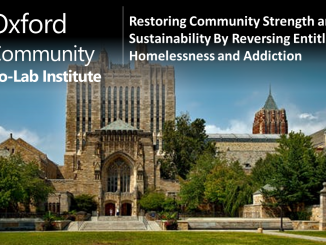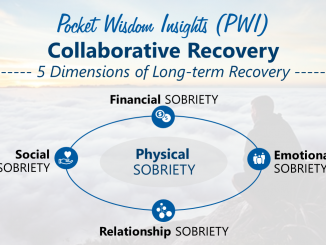
Opening Insights
The Letting Go Process is used in many areas of education, healthcare, leadership and change management. This process was defined by Elisabeth Kübler-Ross (July 8, 1926 – August 24, 2004) a Swiss-American psychiatrist – a pioneer in near-death studies and the author of the groundbreaking book On Death and Dying (1969). There comes a point in life where everybody is faced with the reality of changing or dying. Yet, there is a big difference in the psychology of those dying and the psychology of those whose actions will “eventually” lead to death.
There comes a point in life where everybody is faced with the reality of changing or dying. Yet, there is a big difference in the psychology of those dying and the psychology of those whose actions will “eventually” lead to death.
Kübler-Ross’ 5 Stages of Loss have been used within mental health and personal growth industries, to help people dealing with any form of loss – be it death, divorce, property or addiction. However, there is a certainty / an inevitability when it comes to death and dying that allows people to experience letting go, which many people seeking addiction recovery, for example, may never come to using Kübler-Ross’ traditional 5 Stage model.
Albert Einstein defines insanity as:
doing the same thing over and over again and expecting different results.
Informational Insights
When it comes to “life-style” changes, many people think they can fool Mother Nature, even if they are (consciously) only fooling themselves. For example:
- The smoker who says “I know its bad for me, I can stop anytime.”
- The alcoholic who says “I’m fine, I can control my drinking.”
- The gambler who says “I’m just having a bit of fun, I know my limits.”
In an article by Alan Deutschman called “Change or Die,” Deutschman sites research done by Johns Hopkins University, in which they found that 90% of people (cardiac patients) would not change even though their lives depended on it.[1] This reality points to the fact that while many people want to change and let go of old ways, our beliefs about the certainty of the loss have caused us to take a new look at Kübler-Ross’ original stages in order to assess how they may be best aligned with the mind of an addict.
“These patients can consider the possibility of their own death for a while but then have to put this consideration away in order to pursue life.”[2]
Disconnecting pertinent facts to avoid a conclusion (Truth). An addict simply doesn’t believe that their addictive thinking and behaviors will result in death (of self or others).
“ Wherever the patient looks at this time, he will find grievances.“[3]
Bargaining is an attempt to re-gain control.
“The bargaining is really an attempt to postpone; it has to include a prize offered ‘for good behavior,’ it also sets a self-imposed ‘deadline,’ and it includes an implicit promise that the patient will not ask for more if this one postponement is granted.“[4]
Stage 3: Anger
- Hostility – Anger At Others
- Depression – Anger At Self
- Resentment – Unexpressed Anger. Waiting for a Target
“His numbness or stoicism, his anger and rage will soon be replaced with a sense of great loss.”[5]
Hopeless NOT Helpless, and WILLING to Ask for Help (Willing to Surrender not to give up what you need, but willing to try another way).
“Acceptance should not be mistaken for a happy stage. It is almost void of feelings. It is as if the pain had gone, the struggle is over, and there comes a time for ‘the final rest before the long journey’ as one patient phrased it.”[6]
Stage 5: Acceptance
Willing to ACCEPT help in converting Anger At to Anger About, so one may develop the:
- TRUST,
- Skill,
- Proficiency, and
- Wisdom Within.
Finding Value in the Loss
Stage 7: Experiencing the Value
Sharing Value in the Loss
- PWI Value Intelligence
- PWI Blog
- PWI App-On
- PWI Volunteer Buddy
Possibilities for Consideration
When it comes to addiction, the key piece in the Letting Go Process is to realize and remember that when we get to Stage 4 and we experience Hopelessness, while we may experience the situation as Hopeless (and it may very well be), we are not Helpless. Once we reach this stage of Hopelessness we have the opportunity to come to Acceptance by discovering the value in what we have lost. When we find the value in the loss we experienced, we can then move from our belief structure to our value system – learn and let go. Once in our value system we can shift our anger at to anger about… and so the cycle goes (perpetuates).
Let’s make the dream big enough for everybody.
RICHARD JORGENSEN
For more information click here and explore the PWI Letting Go blog
*Source:
[1] Deutschman, A. (May 2005). Change or Die. Retrieved on November 27, 2016 from //www.fastcompany.com/52717/change-or-die
[2]Kübler-Ross, E. (1969). On Death and Dying. Simon & Schuster/Touchstone. p. 52
[3]Kübler-Ross, E. (1969). On Death and Dying. Simon & Schuster/Touchstone. p. 65
[4]Kübler-Ross, E. (1969). On Death and Dying. Simon & Schuster/Touchstone. p. 96
[5]Kübler-Ross, E. (1969). On Death and Dying. Simon & Schuster/Touchstone. p. 97
[6]Kübler-Ross, E. (1969). On Death and Dying. Simon & Schuster/Touchstone. p. 124
Take a moment and examine…
- As you reviewed the material above, what stood out to you?
- What is the potential impact, economically and/or socially?
- What action is needed to stop or support this idea?
- You may want to consider whether you:
- want to be aware of,
- should become supportive of,
- would want to be active in this topic?
Add Your Insight
I have been impressed with the urgency of doing. Knowing is not enough; we must apply.
Being willing is not enough; we must do.
LEONARDO DA VINCI




